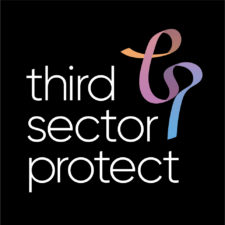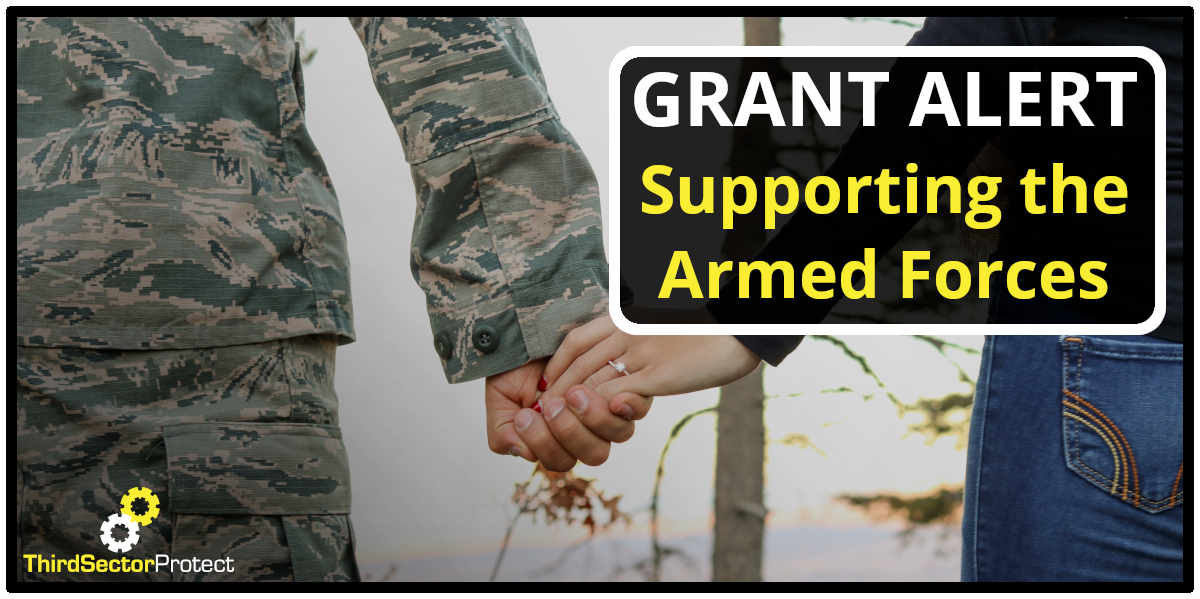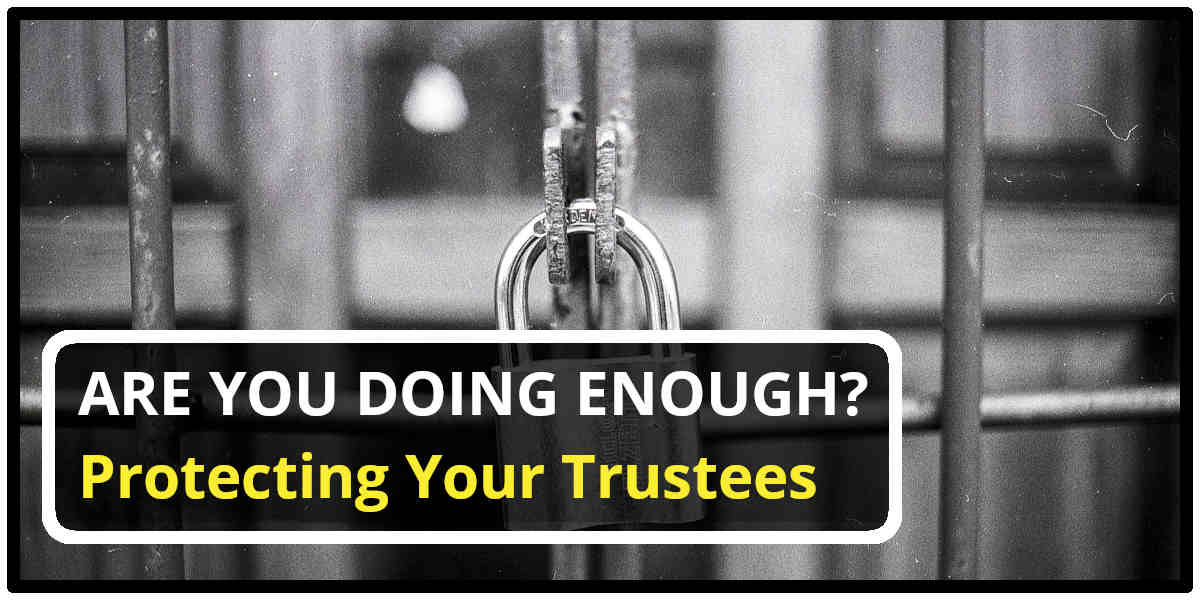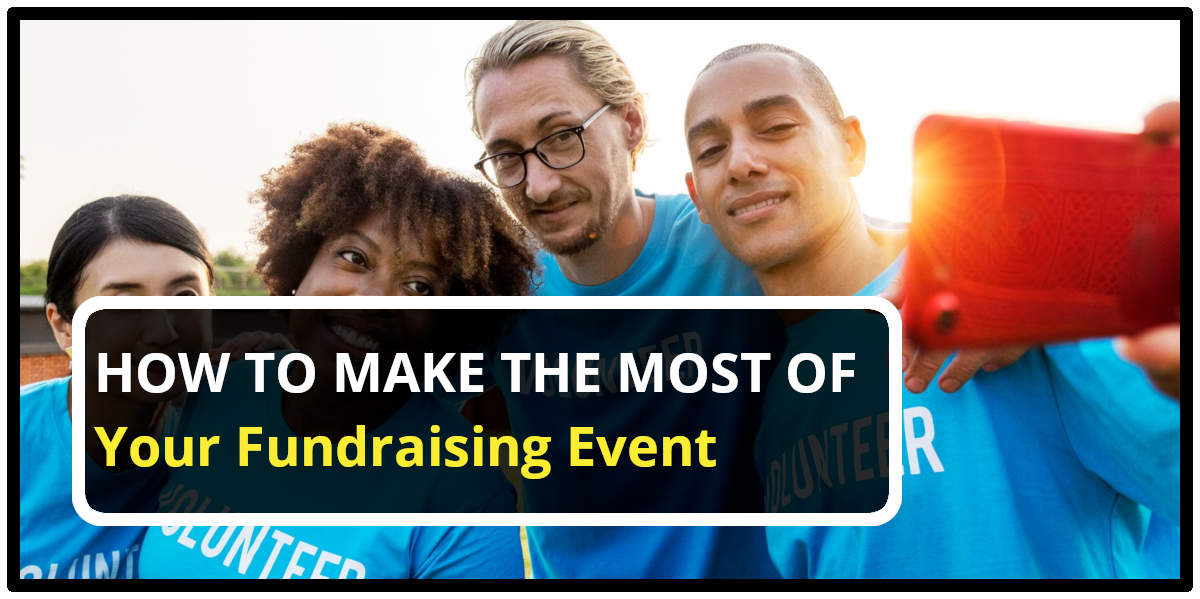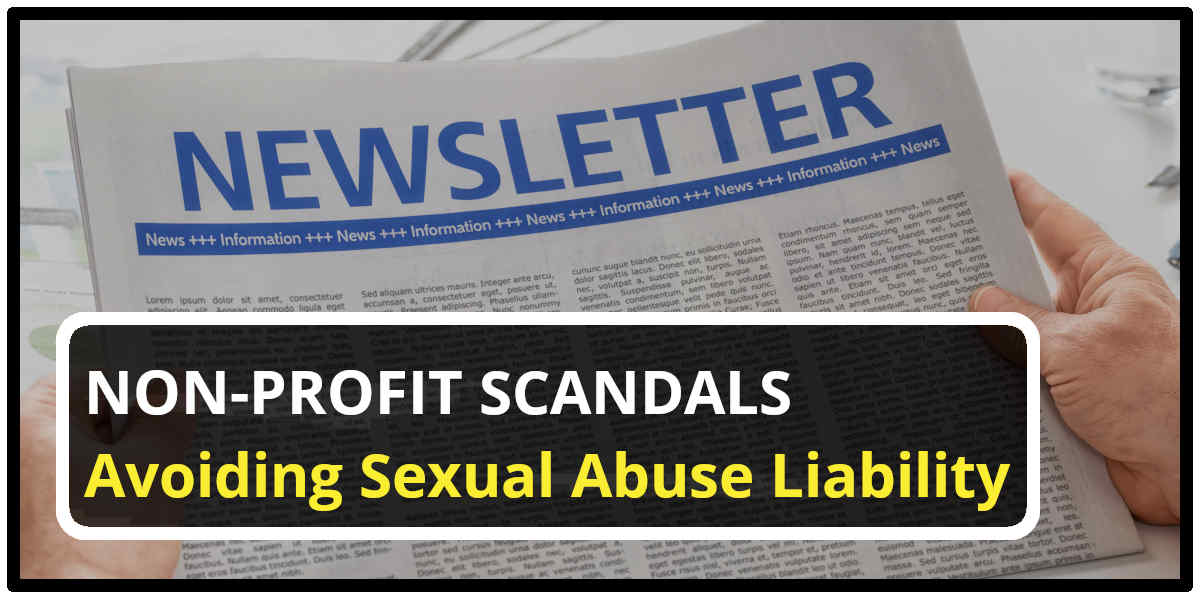
Nonprofit scandals: How to avoid sexual abuse liability
Not-for-profits and other similar groups are at risk for false allegations of sexual assault due to the recent spotlight on the issue and the unique characteristics of these organisations, namely the frequent, unsupervised interaction between children and a trusted adult. Whether legitimate or phony, sexual-abuse allegations & nonprofit scandals involving a minor can have consequences for your group or organisation.
Preventing Nonprofit Scandals
You can take several steps to ensure your organisation does not have to undergo expensive and embarrassing legal actions, including:
- Careful screening of all staff.
- Strictly enforced supervision guidelines.
- Sufficient education and training.
- Specific plan of action to follow when someone suspects or reports inappropriate behaviour.
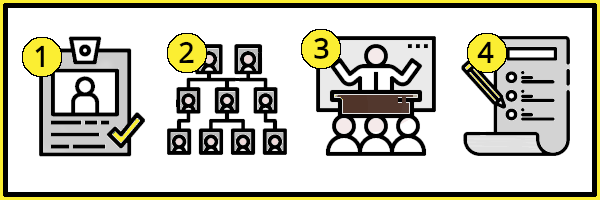
Carefully Screen Potential Staff
One of the most important things you can do to reduce the risk of a sexual misconduct or harassment allegation is to take proper precautions when bringing on new staff and volunteers to avoid nonprofit scandals.
Require that all positions eligible for a Disclosure and Barring Service (DBS) check receive one. Volunteers who have contact with minors, such as coaches, parent volunteers or club organisers, should also be subject to a DBS check before being allowed to mentor or conduct activities in your facility. If you sponsor or organise overnight trips, those volunteers should also be required to consent to a DBS check.
You should also search for all potential employees and volunteers in the Violent and Sex Offender Register (VISOR), to check for any type of sex offender record.
In addition to conducting a DBS check and examining the Violent and Sex Offender Register, you should require all applicants—whether paid or volunteer—to provide a list of non-family references, complete with contact information. However, it is not enough to simply ask for this information. With every applicant, you should follow through and contact the references. Ask specific questions about the applicant’s reputation and character to try and evaluate whether he or she will present a risk to your organisation.
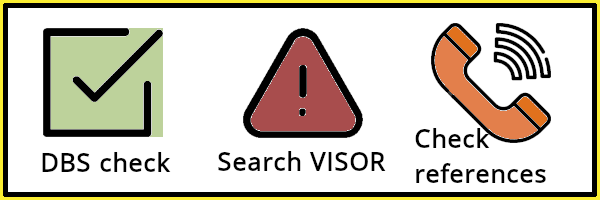
Establish Supervision Guidelines
It is important to set guidelines for staff and volunteer conduct for two reasons. First, it protects minors from ill-intentioned adults and makes the environment safer. Also, it protects employees and volunteers from potentially false allegations.
The most serious risks come when an adult has unsupervised contact with a minor, so these situations should be avoided whenever possible. Some suggestions for supervision guidelines include having two adults in the room with children, requiring two or more children to be present with one adult and having a supervisor or other staff member randomly check in on situations when an adult is with minors.
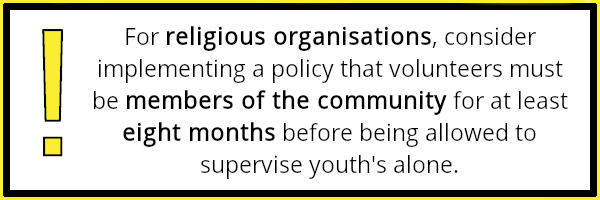
If your organisation conducts overnight trips, the risks and potential liability increase exponentially. Be sure to provide an adequate ratio of adult volunteers to participants for security purposes, and never allow male and female participants to sleep in the same area. Sleeping areas should also have supervision guidelines, such as the two-adult and the two-child rules previously mentioned.
Provide Staff Education and Training
An important step that some organisations overlook is providing adequate education and training to allow employees and volunteers to understand the risk of sexual misconduct allegations. If you educate employees and volunteers, they are more likely to work with you to help reduce the liabilities and risks associated with dealing with youth and children.

Take the time upon hiring to educate staff on the policies and procedures. Be sure to emphasise that sexual misconduct training is not accusatory—it is for their protection. Also, it is a good idea to re-train all staff annually as a reminder about the seriousness of the risk.
Take Allegations Seriously
Many organisations get into trouble not because they failed to conduct the necessary DBS and reference checks, but because when there was evidence of accusations or nonprofit scandals, they did not react quickly and appropriately.
In training sessions, stress that all staff—including volunteers—are required to report suspicions or evidence of abuse to senior staff members. Senior staff should forward these reports immediately to the proper police officials.
To avoid further risk, take immediate action. Remove the employee or volunteer allegedly responsible from duty and do not allow him or her to supervise or come in contact with minors until the investigation is complete. This may be a difficult step, especially if it causes hardship or if there is widespread belief the staff member is innocent, but it is crucial in preventing expensive legal actions claiming negligence.
Documentation is the key to reduced risk in allegation-response situations. Keep detailed, written records of the allegations and of any interviews with the victims or the alleged abusers. Re-visit your records and make sure they reflect the adequate DBS and reference checks you conducted to further document your efforts to prevent abuse situations.
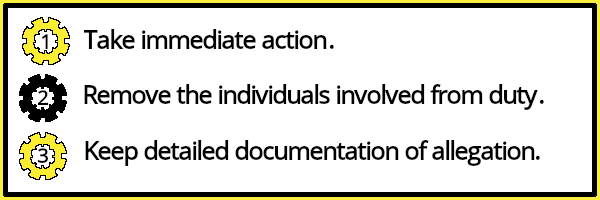
The bottom line is your organisation should work to avoid all circumstances that could lead to nonprofit scandals, such as accusations of sexual misconduct or abuse, whether those claims are legitimate or false. You have the duty to protect your staff, volunteers and children from the risks of harassment and harassment accusations. The nature of your organisation makes this significantly more difficult, but with proper guidance and careful planning, you can mitigate risks and liabilities.
ThirdSectorProtect
As an employer you have the duty to protect your staff, volunteers and children from the risks of harassment and harassment accusations. The nature of your organisation makes this significantly more difficult, but with proper guidance and careful planning, you can mitigate the risks and liabilities. Have any questions, get in touch and one of our expert team will be happy to help on 0800 877 8277.
Fancy reading more? Why not check out these other useful articles?
- Guide to employing & insuring volunteers.
- How to recruit and manage volunteers in your organisation.
- Volunteering Law- Explained
For more tips and tricks on all things related to charities, not-for-profits and community groups, follow us on Facebook, Twitter & LinkedIn.
 |  |  |
